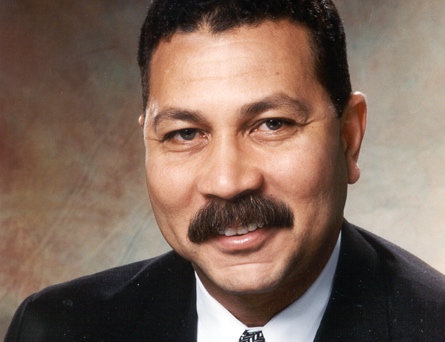Guest Blog: Spectrum Auction Sellers Should Beware ‘Gifts’ from FCC

The smarter way to stay on top of broadcasting and cable industry. Sign up below
You are now subscribed
Your newsletter sign-up was successful
After a 10-year stalemate in the epic war with Troy, Greek king Odysseus devised a clever ruse that would become the stuff of legend. He built a large wooden horse, placed it outside the city gates and waited for the Trojans to take it in. Believing the war to be over, and the horse to be a gift, the unwary Trojans accepted it against the advice of Cassandra and Laocoon, who warned their compatriots to beware of Greeks bearing gifts. At night, Greek soldiers led by Odysseus, dropped from the Trojan horse and sacked the city. Troy succumbed and Greece lives on today.
This tale contains a modern-day moral if we cast the government as Greeks and the broadcasters as Trojans. Over the next few years, the U.S. government is scheduled to auction some of the most valuable airwaves, or spectrum, owned by television broadcasters to make way for more wireless and mobile services. This gift to America's future is courtesy of President Obama, former FCC chairman Genachowski and a penurious Congress who endorsed the plan in 2012 — all, of course, to advance broadband and the public interest.
Today, we are less than a year away from the scheduled broadcast incentive auction, but all is not well.
FCC chairman Tom Wheeler pitches the sale as a “once-in-a-lifetime opportunity,” implying the quest for spectrum soon could come to a close. Given such talk, broadcasters might want to heed Laocoon’s advice. Nothing about the proposed auction is what it purports, which could explain why the National Association of Broadcasters (NAB) has opted to sue the FCC.
In exchange for their valuable spectrum holdings, broadcasters ostensibly will receive serious cash. But this is a decision not to be taken lightly. It portends a drastically and indelibly changed communications landscape, which tilts invariably in favor of the wireless industry. The first installment of the tripartite auction yielded over $40 billion for the sale of AWS-3 wireless spectrum. This was double the most liberal projection, and has ushered in a new stage of anticipatory, irrational exuberance for the broadcast spectrum to come.
To be fair, the prospect of gaining tens, if not hundreds, of millions of dollars for underutilized spectrum is hard to argue against. For some broadcasters, this would be a long-overdue reward for years of thankless toil in the vineyards. After all, the auction is completely voluntary. And yet, relinquishing a scarce and irreplaceable resource, at any cost, could spell the end of broadcasting as we now know it, especially as those left standing are “repacked” into new and unfamiliar spaces. If there is a broadcast victory to be had, it may be pyrrhic. Once sold, the spectrum is forever gone, and with it a unique nexus and claim to communities across America.
Of course, the market is anything but predictable, and the incentive auction could prove too complicated, contentious or concessional for broadcasters to embrace wholesale. While some hope for such an outcome, the die appears to be cast. The cruel irony, however, is that broadcasters have been the most reliable partners to government — ever present through disasters, emergencies and times of trouble. In exchange for such enduring loyalty, the government has proffered a scheme to reallocate spectrum that may be predatory, if not altogether plunderous. The fact that it is voluntary does not lend it verisimilitude.
The smarter way to stay on top of broadcasting and cable industry. Sign up below
Broadcasters were once known as a hearty bunch. To prevail in the broadband future, they will need every bit of wit to survive this latest Trojan horse. The prescient among them should unfurl the warning flags when the government flashes an incentive, subsidy or credit to motivate industry complicity. And lest they forget the admonition of Cassandra, if a gift looks too good to be true, it probably is, even if left at the front gate of your once-impenetrable fortress.
Adonis Hoffman is an attorney and adjunct professor in Communication, Culture and Technology at Georgetown University. He recently left the FCC, where he had been chief of staff and senior legal advisor to FCC commissioner Mignon Clyburn. He is also the author of Doing Good: The New Rules of Corporate Responsibility, Conscience and Character.
